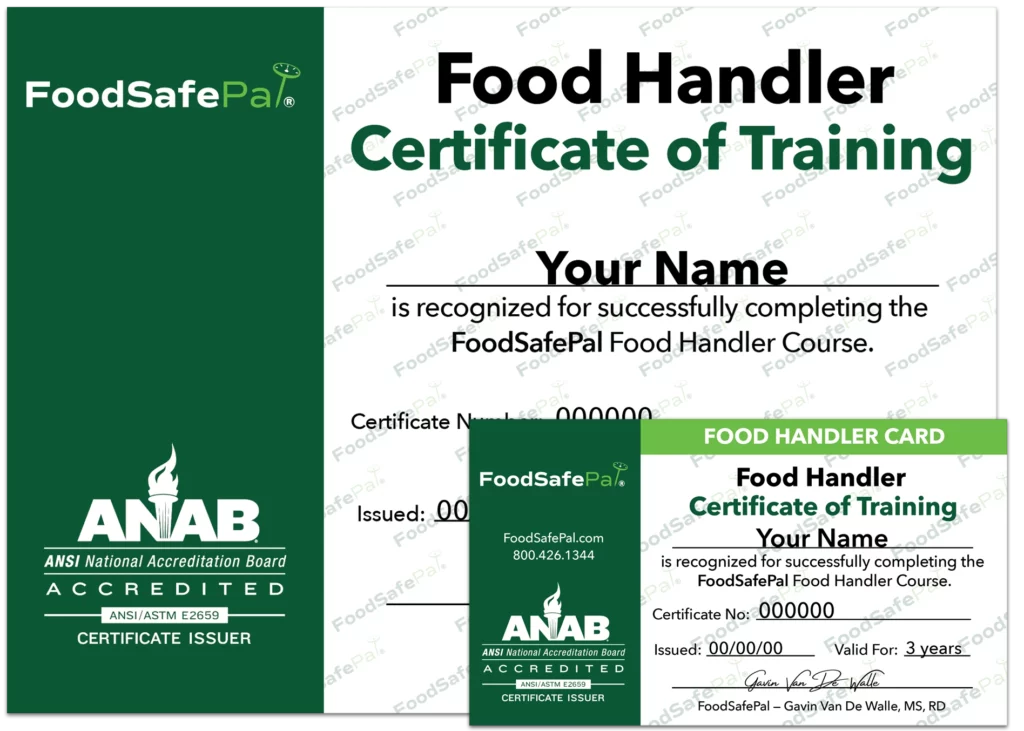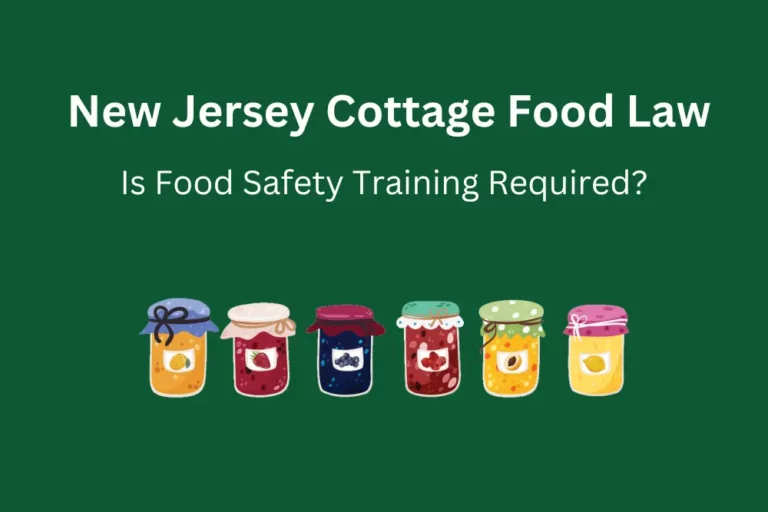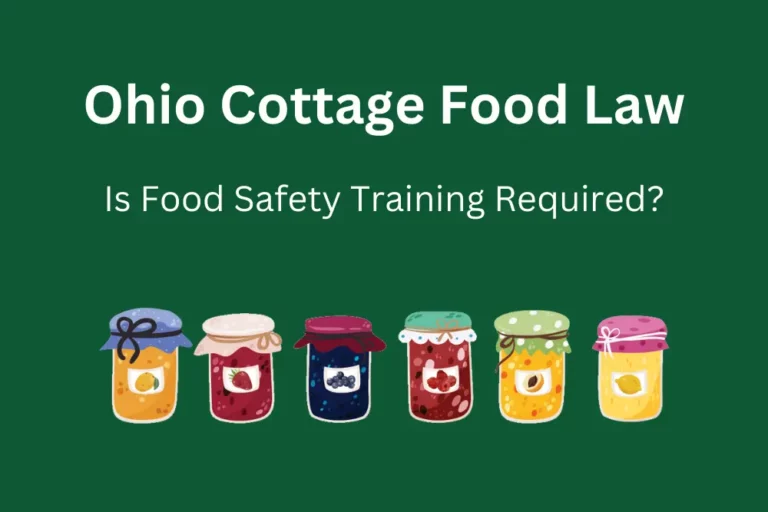Alabama Cottage Food Law: Food Safety Training Requirements
Cottage food refers to food made at home and sold directly to others, usually in person or at events like farmers markets.
Each state has its own cottage food law that regulates what foods you can produce and sell, how and to whom you can sell them, and how much money you can earn each year.
Some states’ cottage food laws also require food safety training before you can sell your homemade goods.
This article discusses the Alabama cottage food law, and whether you need food safety training to sell homemade food.

Alabama cottage food production
Alabama allows the production and sale of homemade goods that don’t require time or temperature controls to keep them safe.
Allowed foods include:
- candy
- baked goods
- vegetables or fruits
- roasted coffee
- dried baking mixes
- jams, jellies, and fruit preserves
- dried and dehydrated herbs or herb mixes
- fermented or preserved fruits and vegetables, like pickles (with some limitations)
Conversely, Alabama’s cottage food law restricts the following foods:
- barbeque sauce
- garlic in oil mixtures
- meats in any form
- raw cookie dough
- fruit and vegetable juices
- milk products, including soft or hard cheeses
- baked goods with ingredients that require refrigeration, such as custard or cream fillings
You can sell approved cottage foods directly to people in person, by phone, or online — as long as they live in Alabama.
You cannot sell homemade foods to retail food establishments or from a retail food establishment.
However, you can sell your food from any venue, such as a mobile food unit, van, cart, tent, booth, or store front that is not regulated as a retail food establishment by the health department.
Cottage food businesses are regulated differently from retail food establishments, so your local county will not inspect your home kitchen and you don’t need a permit.
However, they will ensure you meet other requirements of Alabama’s cottage food law, including food safety training and product labels.
Alabama has no limit as to how much revenue you can earn annually from the sale of homemade goods.
Summary
Under the Alabama cottage food law, you can sell foods that don’t require time-temperature controls for safety directly to consumers. Because Alabama doesn’t regulate cottage food production operations like food establishments, you don’t need a license or permit.
Do you need food safety training to sell homemade food in Alabama?
While Alabama doesn’t require any type of license or permit to operate a cottage food business, the state does require that you complete an approved food safety training course.
To be approved, Alabama requires that the food safety course is accredited by the ANSI-National Accreditation Board (ANAB).
FoodSafePal’s Food Handler training course is ANAB-accredited so it meets Alabama’s food safety training requirement.
Earn Your Food Handlers Card + Certificate to Sell Cottage Foods
Finish in 90 Minutes. Meets Alabama’s Cottage Food Law.

ANAB-accredited food safety courses like FoodSafePal’s are designed for food workers in retail food establishments so some of the content isn’t applicable to cottage food operators.
Still, they cover important food safety principles that you must know to keep your homemade products safe from disease-causing organisms called pathogens that can make people sick.
After you complete the course, you must pass a multiple-choice test to earn your food handlers certificate, which will be good for three years.
You must maintain this certificate throughout the duration of your business, so you need to renew it by retaking and passing another ANAB-accredited food handler training course every three years.
After you earn your certificate, you must take it along with a sample product label to your local county health department for review before you can sell your homemade products.
Your health department can then provide written confirmation that the food handler course certificate and product labels have been reviewed, allowing you to open up shop.
Summary
Alabama’s cottage food law requires the completion of an ANAB-accredited food handler training course — such as FoodSafePal’s — as one of the requirements to open a cottage food business.
Labeling requirements
Alabama’s cottage food law requires that each food has a label.
The purpose of the label is to allow customers to contact you if an illness is potentially linked to your product.
It also informs customers of allergens that may be present and that the food is produced in a home kitchen not inspected by the health department.
This label must include the following information in at least 10-point font:
- the common or usual name of the food
- your name or business name
- your address or business address
- a list of ingredients in the food in descending order of predominance
- the statement: “This food is not inspected by the Department of Public Health”
- disclaimer that the food may contain allergens

You must submit your labels with your application to your local department for approval before you can sell your products.
Summary
Alabama cottage food law requires that each food you wish to make and sell bear a label with the required information. The health department must approve this label before you can sell the product.
The bottom line
Under the Alabama cottage food law, you can produce and sell foods that don’t require time or temperature controls like baked and other dry goods directly to people throughout the state.
If you want to start a cottage food business in Alabama, you must first complete an ANAB-accredited food handler training course, such as FoodSafePal’s.
After completing the course and passing the test, you’ll receive a certificate, which you must provide to your health department before selling your homemade goods.
Earn Your Food Handlers Card + Certificate to Sell Cottage Foods
Finish in 90 Minutes. Meets Alabama’s Cottage Food Law.

You must also submit a sample label for the foods you wish to sell for your health department’s approval.
You can download the Alabama cottage food application here.






